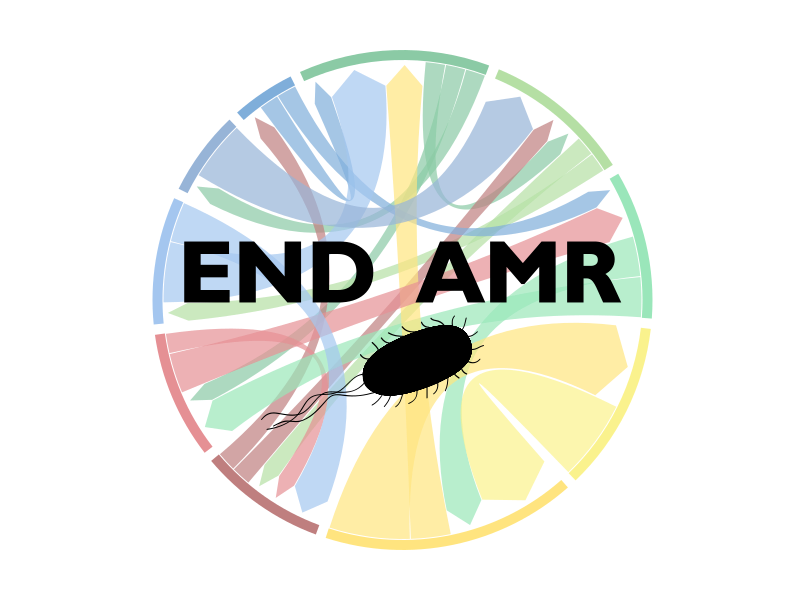Antimicrobial resistance (AMR) is one of today’s most critical public health challenges. Over 39 million deaths worldwide are projected between now and 2050 due to AMR. Without new solutions, AMR will soon become one of the leading causes of death in Europe.
Understanding the driving mechanisms of AMR is vital to delay or reverse resistance in both existing and new antibiotics. The ENDAMR doctoral network aims to better equip researchers in Europe to understand and develop new strategies to tackle AMR. Our projects focus on how AMR affects the fitness of pathogenic bacteria in the gut microbiome, aiming to identify microbiome characteristics that predispose to AMR infections and to explore microbiome-based interventions. We will also study AMR acquisition via horizontal gene transfer, investigating evolutionary pathways, host genetics, environmental factors, dissemination, and AMR reservoirs. Specific projects will seek to understand the frequency, mechanisms, and clinical implications of antibiotic resistance, with a particular focus on the less studied aspects of heteroresistance and tolerance, and to develop new diagnostic tools and predictive models. Finally, we will explore the combination of antibiotics that enhance treatment outcomes and potentially prevent or reverse AMR, based on understanding the interplay of resistance mechanisms. ENDAMR will also prepare doctoral candidates for various career paths beyond academia, including teaching, science communication, and entrepreneurship. Candidates will gain transferable skills and learn from industry role models, equipping them to make significant contributions to solving the AMR crisis.
Nassos Typas (EMBL Heidelberg), Karina Xavier (GIMM), Isabel Gordo (GIMM), André Mateus (MIMS), Peer Bork (EMBL Heidelberg), Ana Rita Brochado (University Tubingen), Lisa Maier (University Tubingen), Dan I. Andersson (Uppsala University), Fernanda Pinheiro (Human Technopole), Pål Jarle Johnsen (UiT), Viktória Lázár (BRC), Nathalie Balaban (HUJI)
